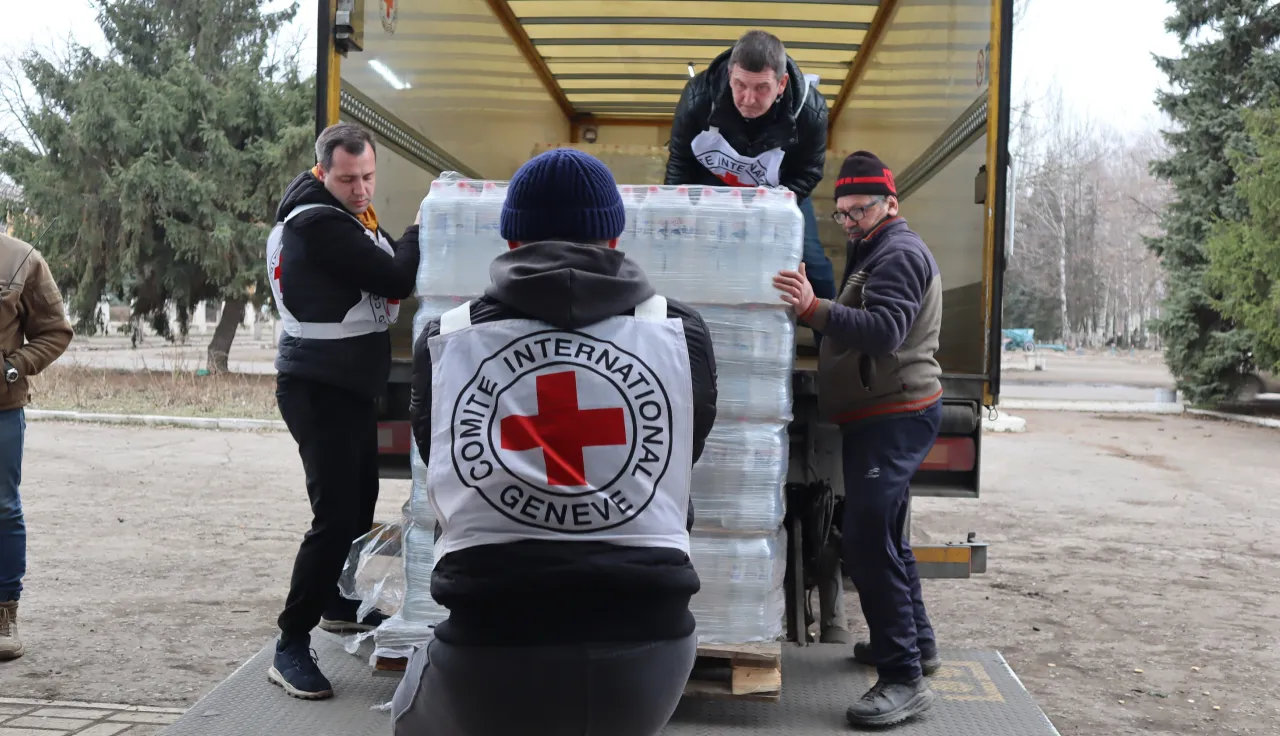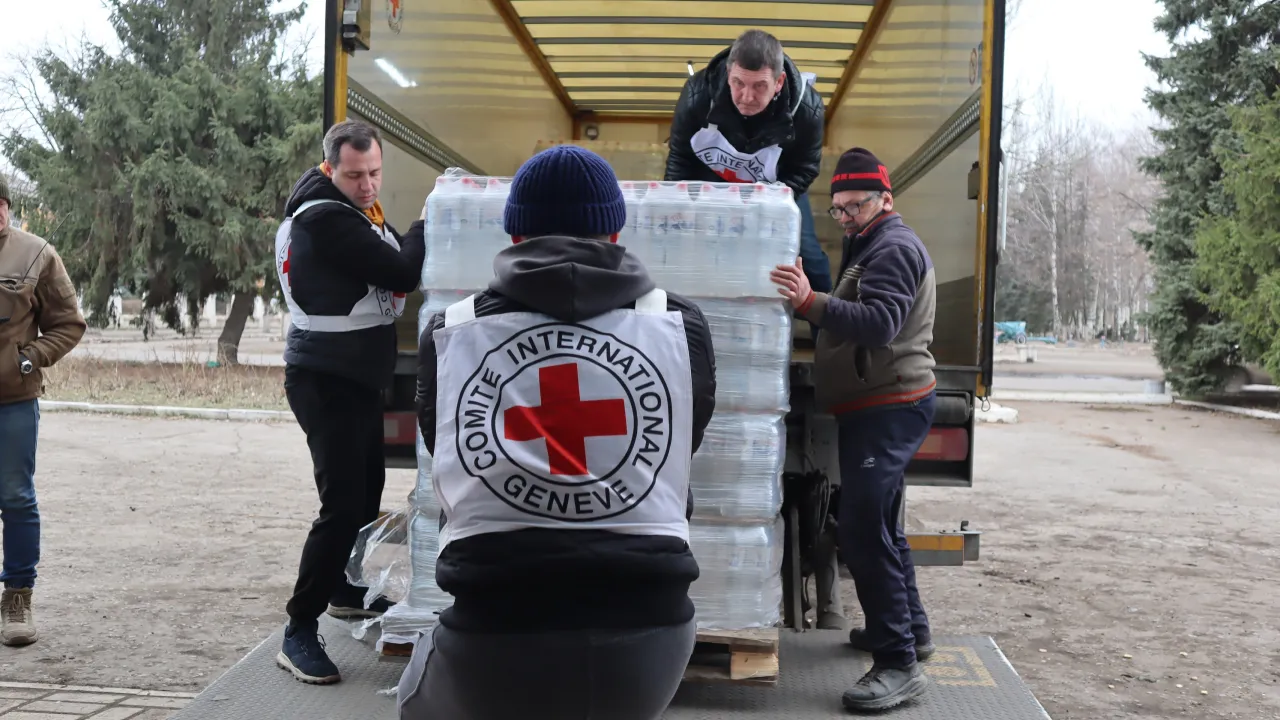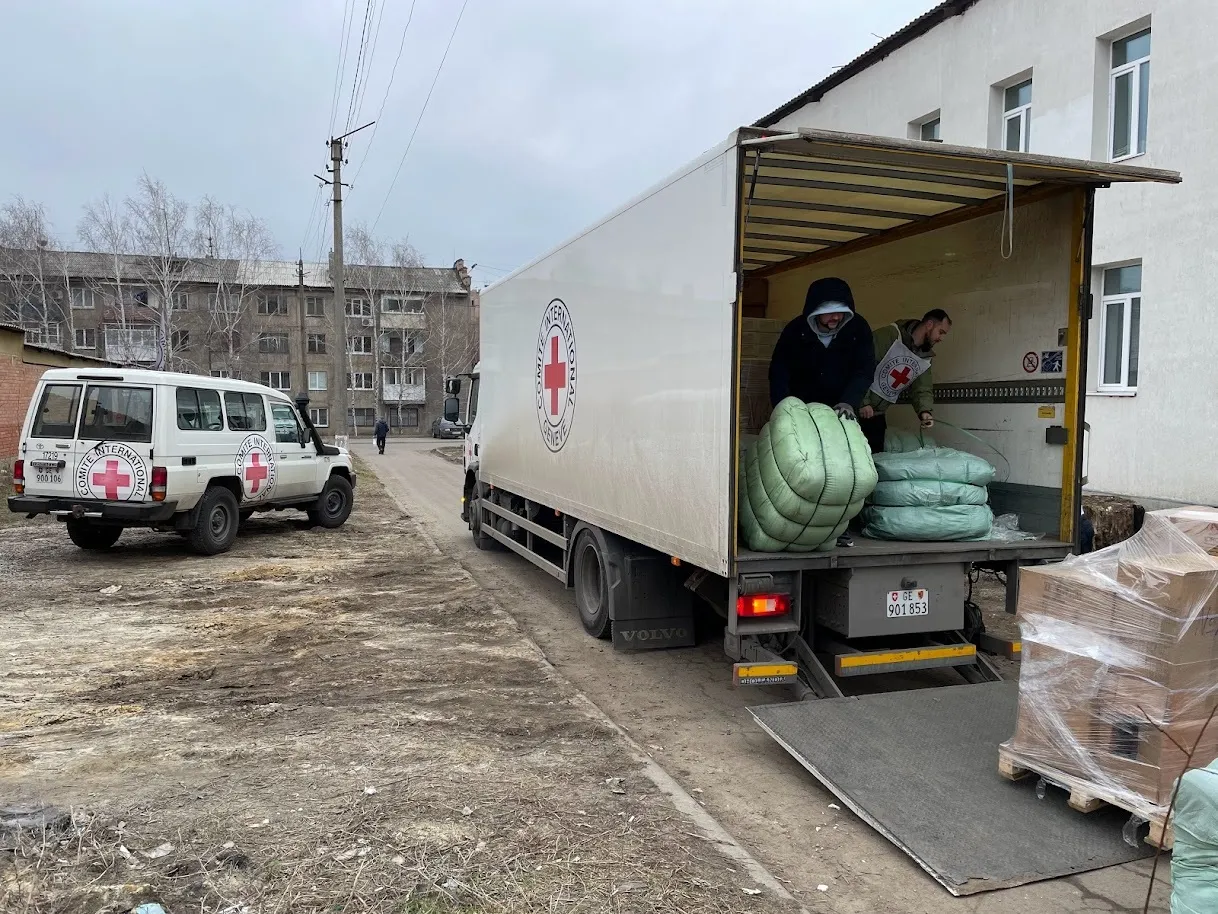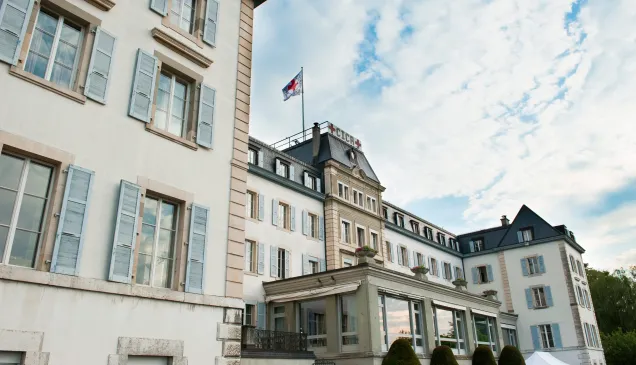Ukraine: Much-needed aid delivered to civilians near Bakhmut, but situation remains dire

The past year of international armed conflict between Russia and Ukraine has caused significant displacement, innumerable civilian deaths and injuries, and devastating damage to civilian infrastructure. It has also taken an emotional toll. Millions of people have had to leave everything behind to escape with their lives. As frontlines continue to shift, more civilians will be subjected to the horrors of conflict, with lives lost and families torn apart.
Most people who could leave have already been evacuated, but for those that remain, the situation is dire and the constant hostilities prevents them from accessing the most basic services.
"When we were evacuated, we didn't have any clothes, only those we were wearing at the time", Tetiana, who left Bakhmut for Kostiantynivka.
"When we were evacuated, we didn't have any clothes, only those we were wearing at the time", Tetiana, who left #Bakhmut for Kostiantynivka.
Find out more in our new footage https://t.co/bmzq35vAdi pic.twitter.com/EwhGl9NKmj— ICRC Ukraine (@ICRC_ua) March 23, 2023
Humanitarian assistance
We delivered much-needed humanitarian assistance to Kostiantynivka and Chasiv Yar, two locations close to Bakhmut, where the fighting has been particularly intense for several weeks. Another convoy reached Selydove, a locality close to the frontline.
As the convoy moved closer to Kostiantynivka, Chasiv Yar, and Selydove, the extent of destruction in the area became evident. Homes, hospitals, schools, and infrastructure have sustained heavy damage. The damage to critical infrastructure caused by heavy explosive weapons, whether direct or incidental, can plunge entire communities into despair and devastate civilian lives.
"We have a lot of elderly people. They really need assistance, especially because they have low pensions. This help is very important. Hygiene products are very expensive now for pensioners, and stores in our areas don't get stocked. We don't have any opportunity to visit the nearby town because there is no bus to go there," said Daniil, a 19-year-old man living in a nearby village.
As a direct consequence of the current hostilities, the humanitarian needs of civilians around the frontline keep rising. Around 10% of the population of Kostiantynivka are internally displaced people from neighbouring villages who are temporarily settled in the city, while only 1,500 civilians are left in Chasiv Yar and some 800 in Selydove. Those are mainly elderly, low-mobility, or people with disabilities, as well as civilians who refuse to leave their homes or have been displaced from frontline villages.
Our convoy brought to Kostiantynivka and nearby villages the following:
- More than 1,500 hygiene kits containing essential supplies like soap, shampoo, toothpaste, toothbrushes, sanitary pads, and shaving kits
- 800 solar lamps and hundreds of blankets for residents and displaced people.
- In Selydove, 17 tons of food – including rice, pasta, canned goods, and other supplies – and one ton of hygiene items were delivered. Local officials estimate that the food supplies will be enough to feed civilians remaining in this community for a month.
- 6,000 litres of drinking water were provided to Chasiv Yar, which local authorities expect will serve the needs of people there for 10 days.

Distribution of humanitarian aid in Chasiv Yar, near Bakhmut
We are supporting humanitarian hubs in Kostiantynivka and Chasiv Yar, where displaced people from Bakhmut and other frontline cities stay before continuing their journey to safer areas. Since September, these hubs have been provided with food parcels, hygiene kits, water tanks, heating material, and generators to ensure that they can properly welcome people fleeing the moving frontline.

Distribution of humanitarian aid in Kostiantynivka, near Bakhmut
We are deeply concerned by the situation in Bakhmut and nearby communities around the frontline and the deep civilian suffering caused by constant military hostilities.
"It is a really difficult situation here; it's loud and scary. Yesterday a rocket flew over our heads. We are not living but surviving," said Nikolai, a resident of Verolybivka.
Appeal to respect international humanitarian law
We appeal to the belligerents to respect international humanitarian law, notably by allowing humanitarian aid in and ensuring that civilians under their control have access to assistance and that those not part of the fight are protected from targeted attacks wherever they are.
Attacks must not be directed against civilians. People not taking part in combat are protected by the Geneva Conventions and its Additional Protocols. Parties to the conflict must take into consideration how hostilities will affect civilian populations.
Additionally, attacks on populated areas, including through the indiscriminate use of mines or cluster munitions, destruction of the natural environment, and damage to infrastructure can pose a lasting threat to civilians. Parties must take every possible precaution to minimize the damage done to civilians.



